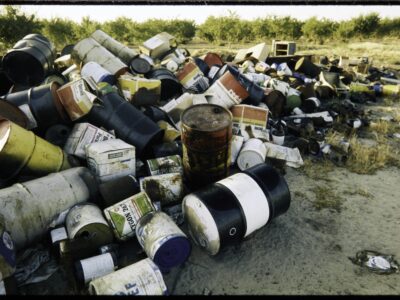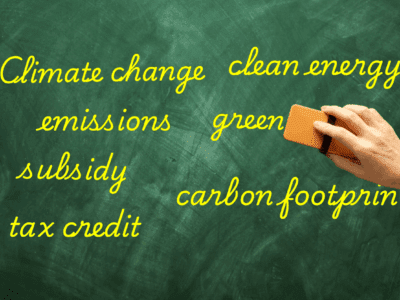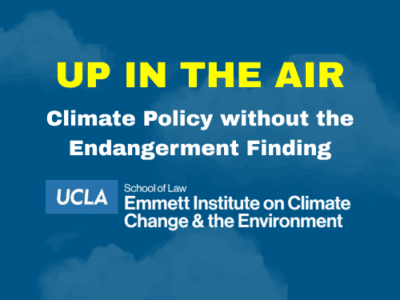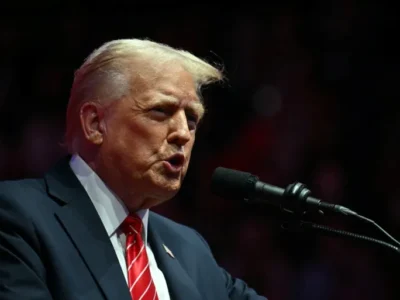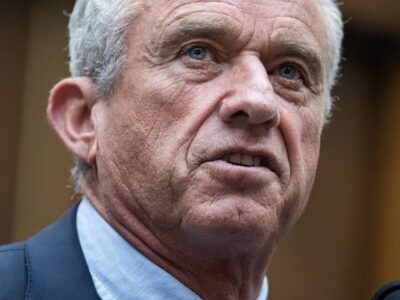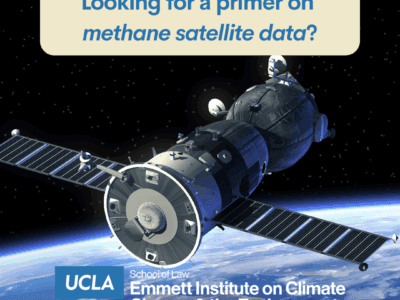Environmental Science
America’s Dirty Pictures: The Forgotten ‘Documerica’ Reminds Us How Far We’ve Come
The Documerica project, housed at the National Archives, provides a vivid window into environmental destruction circa the 1970s.
In recent decades, environmental laws have not only been challenged in courts and Congress; they’ve also taken a verbal beating. They’ve been denounced as “job killers”, “government overreach,” “radical environmentalism,” a “war on coal,” and, lately, just “woke.” It’s become all too easy to focus on the costs of regulation and forget why we adopted …
CONTINUE READINGThe Compact for Censorship
The so-called compact is a thin front for massive incursion into free speech and academic freedom.
A key First Amendment principle prohibits the government from discriminating on the basis of viewpoint. This Compact contains a string of viewpoint-based rules. That’s a threat to any view the government doesn’t like, which definitely includes a belief in climate change or the benefits of renewable energy. Because violation of the agreement triggers draconian sanctions, and the Administration is the judge of what constitutes a violation, the chilling effect will be tremendous.
CONTINUE READINGAt a Loss for Words? Resist Climate Silence
The Drain is a weekly roundup of environmental and climate news from Legal Planet.
A few years ago, I was writing about how President Joe Biden was flying around the country to promote his landmark climate law without uttering the word “climate.” Seems so quaint. Now, we find ourselves in a place where “climate change” is on a list of banned words maintained by the U.S. Energy Department, along …
Continue reading “At a Loss for Words? Resist Climate Silence”
CONTINUE READINGWebinar: Climate Policy without the Endangerment Finding
UCLA Law’s “Up in the Air” webinar explores the future of federal and state climate policy if the endangerment finding is repealed.
As Environmental Protection Agency Administrator Lee Zeldin rushes to rescind the endangerment finding — which some have called “the Holy Grail of U.S. climate policy” — the UCLA Emmett Institute hosted an expert panel discussion on the reasoning and ramifications of such a move. The effort underlines “an extraordinarily dark time in U.S. environmental politics,” …
Continue reading “Webinar: Climate Policy without the Endangerment Finding”
CONTINUE READINGIn His Own Words: The Unitary Executive Explains Science Stuff to Us
Inside the government, the war on science seems to be over, and ignorance has won.
In the past couple of days, the President has given us the benefit of his wisdom on highly technical issues. It seems clear that, as far as the government is concerned, the war on science is over, and ignorance has won.
I’m going to let the President make my case for me. Below are excerpts of Trump’s explanations of vaccine policy, autism causation, and climate science.
CONTINUE READINGA Clear and Present Danger to American Health
We’re all – each of us individually — less safe than we were a year ago.
RFK Jr. is purging the government of anyone who actually believes in science. What’s happening to public health under his leadership isn’t unique. All across the government, Trump is at war with science, cancelling billions of dollars of biomedical, energy, and climate research; closing EPA’s science department; replacing hard scientific evidence with climate denial as official dogma. This is a recipe for disaster, like closing your eyes will flying a plane.
CONTINUE READINGHow Methane Satellites Work and Why it Matters
This new UCLA Law report aims to help policymakers understand the science and utility of methane satellites.
These days, I’ll take progress on climate change where I can get it. And one place to look right now is up — literally. New satellites are providing never-before-seen data about global methane sources, helping policymakers, industry, and others target that superpollutant in new ways. Today, some colleagues at UCLA Law and I are releasing …
Continue reading “How Methane Satellites Work and Why it Matters”
CONTINUE READINGHow Trump’s War on Research Hurts the US Economy
The economic evidence confirms the huge benefits of government support for research.
One of the victims of the Trump Administration has been scientific research, notably including research on the environment, clean technologies, and even public wealth. The government’s own research capacity is under attack from agencies from EPA to NIH, grants to universities have been cancelled, and future funding from agencies like NIH and NSF is in peril. Yet the Administration has given little though about how this effects competitiveness in a high-tech world.
CONTINUE READINGCan States Rebuild the Barn?
Multistate compacts might be a critical way to help replace lost federal capacity – but we need more details.
A couple of weeks ago I asked how we can stand up institutions in light of the Trump Administration’s destruction of environmental agencies. As House Speaker Sam Rayburn famously said: “any jackass can kick a barn down. It takes a carpenter to build one.” And not a moment too soon. EPA Administrator Lee Zeldin has …
Continue reading “Can States Rebuild the Barn?”
CONTINUE READINGEnvironmental Rollbacks: Will the Trump Administration Overplay Its Hand?
The odds are good that Trump agencies will go too far out on a limb.
The Trump Administration’s tendency to rely on bold legal arguments rather than detailed technical ones is a disadvantage in court. Courts defer to agencies on factual matters, especially those that involve technical expertise. Now that Chevron has been overruled, however, legal arguments by agencies don’t get the same deference. Thus, the chances of a judicial reversal are higher when the agency relies on purely legal grounds.
CONTINUE READING



